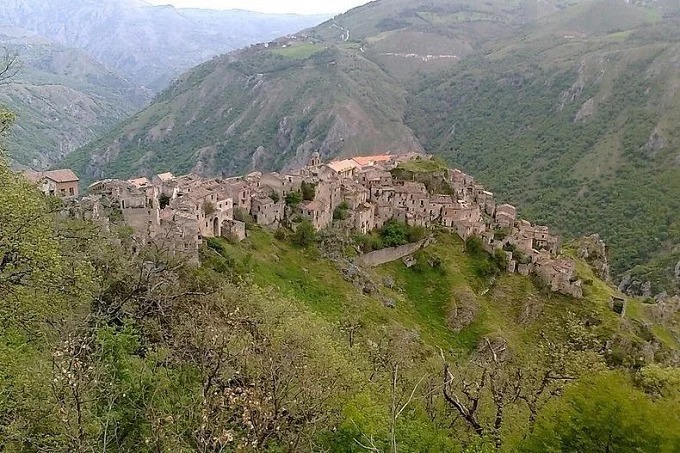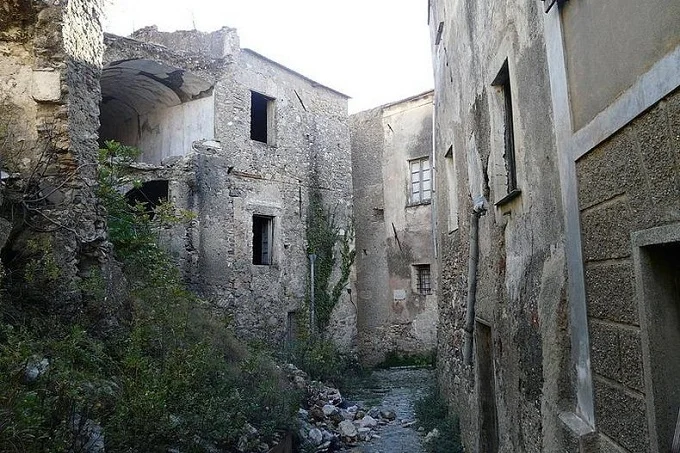Everyone has heard of Pompeii, the brilliantly preserved Roman city that was buried for years by Vesuvius’ explosion. However, there are additional, lesser-known ghost towns in Italy that inhabitants have vacated following catastrophic natural catastrophes. These villages are genuinely amazing in their dismal grandeur, ranging from modest groups of artists to great settings for the film.
Romagnano al Monte

An Italian ghost town that was just added to the list. Romagnano al Monte was a tiny town near Salerno that was completely devastated in 1980 by an earthquake. Three thousand people died as a result of the earthquake. The survivors chose to relocate rather than repair their former houses. They relocated a few kilometers away in a safe place, preserving part of the community.
This location became a tourist destination in the 2000s. Despite the fact that this ghost community is just 30 years old and has indications of modernity such as wiring (or what remains of it), Romagnano al Monte resembles medieval ruins.
Krakow
A number of circumstances led to the transformation of this medieval settlement at the foot of the hills into a ghost town. War, earthquakes, and landslides are only a few examples. This settlement is located in the province of Matera, on the ascent of the Italian “boot” (map). Despite the city’s lengthy existence from 1892 to 1922, it was formed in 540 AD. The majority of its residents emigrated to other parts of Italy or perhaps America.
In 1963, a landslide displaced the remaining 1800 residents. Once the ghost town became a tourist attraction and a movie set, they departed. Scenes from Mel Gibson’s films “The Passion of the Christ,” “007: Quantum of Solace,” and “Saving Grace” were shot here.
Balestrino
The old town of Savona (northwest Italy) has been abandoned, as the vacant streets and residences demonstrate.
However, nothing is known about the city, such as when it was created or why people chose to settle here. An earthquake that rocked the coast in the late 1800s is thought to be the cause of this. An earthquake measuring 6.7 on the Richter scale struck in 1887. However, if you want to view the city in its abandoned form, you’ll have to hurry since the Italian government just decided to restore it.
Bussan Vecchia
The same earthquake that shook Balestrino also destroyed this lovely village. As a consequence, about 2,000 people were murdered in the area. In general, it was the first earthquake that led to the creation of the seismograph by Italian Filippo Cecchi. The people of the previous hamlet relocated to New Bussanu once it was abandoned.
People started to live here illegally in the 1950s, and in the 1960s, he formed his community artists on campus. Despite the government’s repeated efforts to expel them, the Society of International Artists has remained in the city to this day. They survive solely on the proceeds from the selling of their artwork to visitors.
Pentedattilo
The Greeks built this settlement in the area of Kalambriya (southern Italy) about 640 BC. A devastating earthquake struck in 1793. People have relocated to Melito Porto Salvo, a neighboring town, as a result of the earthquake. Because its previous people were compelled to toss their houses and possessions, the city overlooks the Ionian Sea and resembles an open-air museum.
Until the 1960s, the city was deserted and had not caught the attention of volunteers eager to bring it back to life. Pentedattilo is now hosting a film festival, and the ruins are attracting a slew of artists looking for inspiration.
